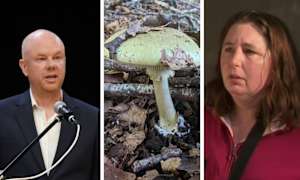PEOPLE who contract COVID-19 are urged to perform a Rapid Antigen Test (RAT) as soon as they show symptoms to ensure they have access to anti-viral medication if eligible.
Anti-viral medication must be taken within five days of getting COVID-19 to be effective and that is why it is important for people to get tested for COVID as soon as they notice any symptoms.
People at risk include people who are aged 70 and over, aged 50 and over with certain health conditions (or 30 if they’re Aboriginal or Torres Strait Islander), or have a weakened immune system, disability or are born with heart disease.
With more incidences of influenza and COVID being reported in the community, Bass Coast Health (BCH) CEO Jan Child is urging people to also ensure their vaccination status is up-to-date to give them the best protection.
“More than 4.2 million Victorians are now eligible for a 2023 booster dose of a COVID vaccination and so many more of us need to get a booster to give ourselves, and our community, the best protection possible,” she said.
“In a recent week, 58 COVID-related deaths in Victoria were reported to the Department of Health, equating to an average of 8 deaths a day, so this virus remains a very real risk to our community, particularly to those with compromised immune systems and the elderly.”
Flu and COVID vaccinations are available from selected pharmacies and GP clinics.
“This is the third year we have lived with COVID and there are now more cases of COVID, as well as influenza, in our community as people start to gather inside during wintry weather,” Ms Child said. “Ensuring your COVID and flu vaccinations are current, including by having a COVID winter booster if it’s been six months or more since your last vaccination, will help to keep you and others safe.
Members of the public can also reduce their risk of getting or spreading COVID and influenza by washing their hands regularly, covering their mouth when coughing, sneezing into disposable tissues, and cleaning or disposing of contaminated objects.
Get your flu vaccine Gippsland!
Recent data shows that Gippslanders are lagging in receiving a flu jab this year and are being urged to get vaccinated before the peak of this year’s flu season.
“The flu season typically goes through to mid-September so there’s more than two months where people will be at increased risk,’ said Dr Alex Tai, Infectious Diseases Physician from the Gippsland Region Public Health Unit (GRPHU).
While all ages should be getting vaccinated, the highest number of reported cases in Gippsland this year to date is in the under 9 age group.
While the flu can present as a minor ailment for some people it can have serious consequences for children and those with pre-existing conditions.
Free seasonal influenza vaccine is funded under the National Immunisation Program (NIP) for the following groups at higher risk of complications from influenza:
- People aged six months to less than five years (can be given at the same time as childhood vaccines)
- Aboriginal and Torres Strait Islander people aged six months and older
- Pregnant women (can be given at any stage of each pregnancy)
- People aged 65 years and older (a vaccine that is specifically designed to produce a higher immune response is available for this group).
- People aged six months and older with medical conditions putting them at increased risk of severe influenza and its complications.
More information can be found at Seasonal influenza vaccine (health.vic.gov.au)










